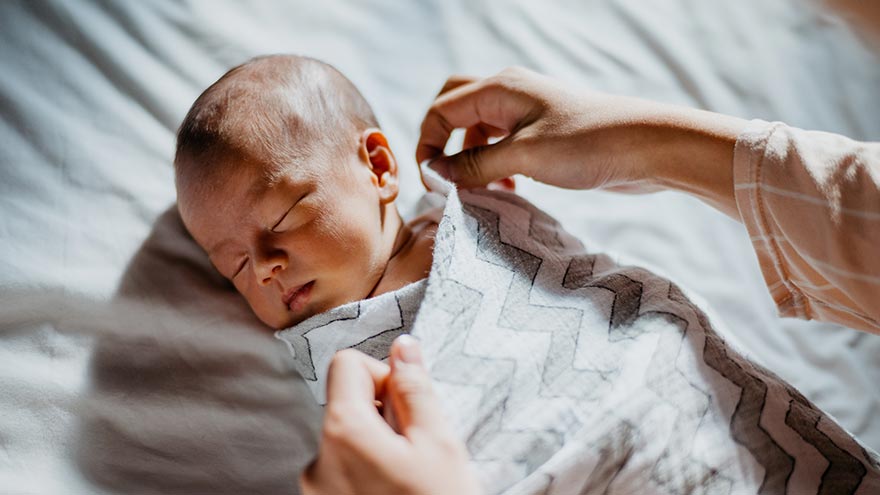Our Specialty is You
Every child deserves truly exceptional care – and Renown provides the region’s best.
November 11, 2022

Although the exact cause of Sudden Infant Death Syndrome is unknown, there are steps parents and caregivers can take to reduce the risk. Here's what every parent needs to know.
SIDS is the leading cause of death in the country in infants in their first year of life. However, the exact cause of SIDS still remains a mystery, though it is often attributed to unsafe sleeping practices. Karen Wagner, a Pediatric Nurse Practitioner at Renown Health answers some of the most commonly asked SIDS questions.
Who's most at risk?
Three out of five SIDS victims are boys. African American and Native American infants are twice as prone to the syndrome. Other groups at increased risk include preemies, low-birthweight babies, and infants exposed to cigarette smoke.
Is putting my baby down on their back really that important?
It's vital. Back-sleeping increases a baby's access to fresh air and makes her less likely to get overheated (another factor linked to SIDS).
I put my child to sleep on their back at night, but can I let this rule slide for a short nap?
It's not worth the risk. Babies who normally sleep on their back are 18 times more likely to die of SIDS when placed down on their tummy for a snooze.
Is side-sleeping safe?
No. Studies show that putting a baby down on her side rather than on her back doubles the SIDS risk. It's easier for an infant to roll onto her tummy from her side than from her back.
I'm worried about my baby getting cold. Is it safe to cover them with a blanket?
Wait until their first birthday. Blankets, pillows, comforters and stuffed toys can hinder your child's breathing; even soft or improperly fitting mattresses can be dangerous. If you're worried that your little one may get chilly, swaddle them in a receiving blanket or use a sleep sack.
Is it dangerous to give my baby a pacifier?
Not at all. Pacifiers reduce the risk of SIDS, possibly by preventing babies from falling into an extremely deep sleep. It's now recommended that you consider giving your child a pacifier at night and for naps during his first year. Note: If breastfeeding, don't introduce a pacifier until your infant is 1 month old and nursing well.
My baby has started to flip onto her stomach during the night. How can I stop this?
You can't but don't worry. Once a baby can roll over by themselves, the brain is mature enough to alert them to breathing dangers, and by the time the child is 6 months old, the improved motor skills will help to rescue the baby, so the SIDS risk is greatly reduced.
My baby sleeps better in my bed. What's the big danger of co-sleeping?
Actually, there are lots of them. A pillow or a loose blanket could suffocate your infant. The air supply may be cut off if you or your spouse inadvertently roll over onto the baby. And the baby could be strangled if its head gets trapped between the headboard and mattress. If you decide to co-sleep, don't put your baby right in bed. Instead, get a co-sleeping crib that clamps onto the frame of your bed. Or you might try moving your baby's crib into your room. Several studies show this sleeping arrangement reduces the SIDS risk.
What causes infants to stop breathing while they sleep?
Experts believe SIDS victims have an immature arousal center in the brain. Put simply, they can't wake themselves up when they're having trouble breathing. Infants who sleep on their stomachs are particularly vulnerable to SIDS.